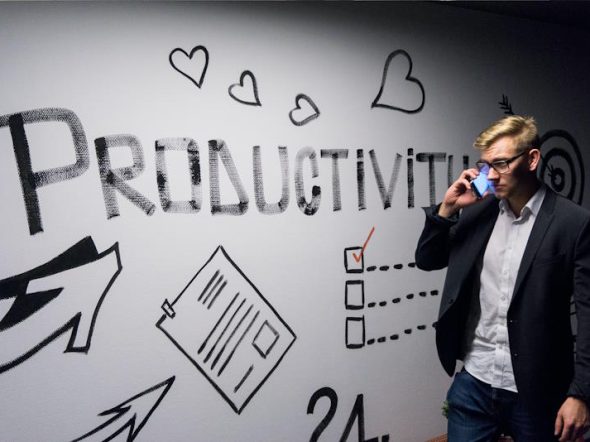The overall measure of productivity can translate to the ability to complete tasks within the stipulated time and close the workday with quality product output. However, without proper strategies to stay organized, manage time, and set priorities, your productivity and efficiency may greatly suffer. Thankfully, a few simple adjustments to your daily workflows can yield notable changes in your productivity levels. Here are six effective ways to boost your productivity at work.
Refine and Clean Your Workplace
Less-than-ideal surroundings can significantly lower your work productivity. Your working space should be clean and well-organized to keep you motivated and focused. Use organized cubicle ideas to keep your workspace clear of clutter and other unneeded items and store everything you need in its rightful place.
Consider investing in ergonomic accessories like a desk, chair, wrist rest, and cushion to support your body. Place your desk close to a window to access natural light if possible, as it can improve your work performance. Also, add some greenery to the space with a plant. In one study, individuals with close by plants noted a faster reaction time of 12% on computer tests.
Prioritize Tasks
At the beginning of the day, create a to-do list of all the tasks that need to be completed, starting with the most urgent and demanding to the least important. Also, write down the due dates for each task and allocate time to it. Prioritizing your daily tasks will help you use your time efficiently, leading to more output.
Limit Unproductive Meetings
Numerous employee meetings can be time-consuming and unproductive. To save time for operational work, only schedule meetings on critical topics that call for everyone’s presence, like important announcements and business strategy. Meetings improve communication among teammates and strengthen bonds, so you shouldn’t eliminate conventional meetings altogether. If you have a remote team, organize regular Zoom meetings to promote team building, keep them connected, and strengthen work morale.
Encourage Regular Breaks
You may be tempted to think that staying at your desk the entire day without breaks will enable you to complete more work. However, taking regular breaks can help refuel your energy, boost your mood, and improve your overall well-being and performance capacity. Move from your work desk and grab a snack or take a short walk around to clear your head. You can recharge and prepare for the next task by taking five to 10 minutes between active work hours.
Limit Interruptions
Personal distractions can make you lose focus and consume much of your time. You must establish strategies to limit interruptions, whether informal conversations with coworkers or checking your social media network to catch up with recent updates. For instance, you can close your office door when working or use noise-canceling headphones if operating from an open office environment. Besides, encourage employees to take personal phone calls or check their social profiles during break time.
Leverage Time-tracking Software
Time-tracking software can help you and your teammates plan the day, allocate time to each task, track how long it takes to complete, and monitor productivity. This will give you greater control over your schedule, reducing time waste and improving productivity. If you are an employer, time-tracking software will give you insights into how the business operates and allow you to make necessary changes to boost efficiency.
Determine what strategy works for you and implement it to increase your output at work. You can even integrate several tips to ensure better work-life balance and time management. Most importantly, ensure you work in a clean, comfortable, distraction-free environment.
